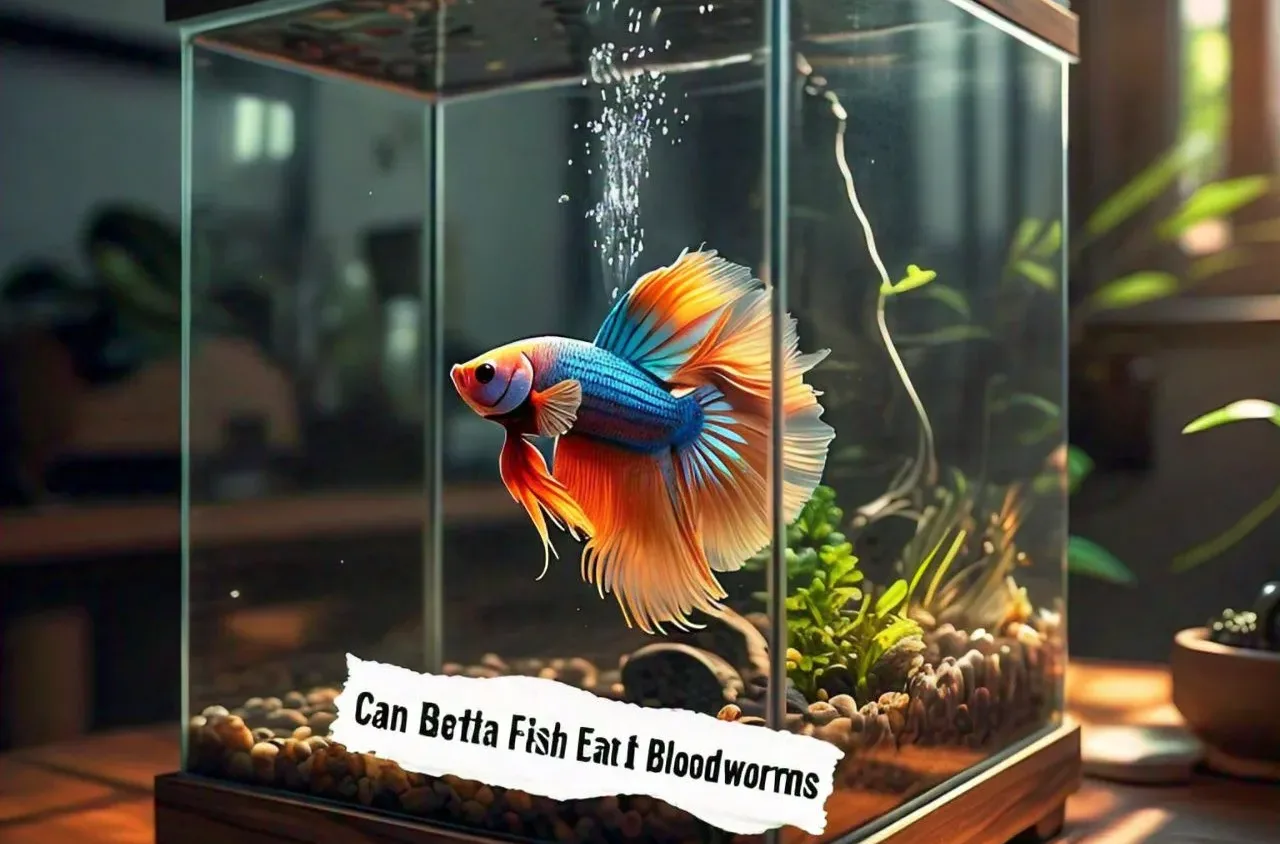Many Betta owners enjoy watching their fish feed on bright red bloodworms, as they are not only visually appealing but also stimulate the Betta’s appetite. Offering these as a treat now and then can help keep your Betta fish happy. If fed in moderation, bloodworms can be a great source of nutrition, support breeding, and even provide the right boost to your Betta’s overall well-being.
Healthiest Bloodworms or Harming
These high-protein larvae, often found in pet stores, make a great addition to their diet. Bloodworms come in different forms, such as live, frozen, or freeze-dried. It’s important to remember that bloodworms should not be the only food you feed them. They can be a special treat that adds variety, but Betta fish require a balanced diet to stay healthy. If you choose to feed them bloodworms, ensure that they are thawed properly if frozen, and use a pipette or tweezers to feed them. This helps control portions and prevents overfeeding, which can cause health issues.
How Many Bloodworms Should I Feed My Betta?
For an adult Betta, feeding 2-3 bloodworms, two to three times a week is usually enough. This helps provide variety in their diet without overfeeding them. It’s important not to give bloodworms every day because they are high in protein, which can cause bloating and other health issues if fed too often.
Different Types of Bloodworms for Betta Fish
There are three main types of bloodworms you can choose from:
Live Bloodworms
- Live bloodworms are the freshest option and are packed with nutrients. However, they can spoil quickly, so they need to be used immediately after purchase.
Frozen Bloodworms
- Frozen bloodworms are convenient and keep well in the freezer. You can defrost a small amount whenever you want to feed your betta.
Freeze-Dried Bloodworms
- Freeze-dried bloodworms are easy to store and don’t need to be kept cold. Soak them in water for a few minutes before feeding.
Each type of bloodworm has its benefits, so you can choose the one that best fits your needs and keeps your betta happy and healthy!
Safely Feed Your Betta Fish Bloodworms
- Read the Package Instructions
- Buy Bloodworms from a Trusted Source
- Rinse the Bloodworms
Why Your Betta Might Not Be Eating?
Picky Eater
- Sometimes, Your Betta might not like bloodworms or prefer a different type of food. Just like some people don’t like certain foods.
Feeling Unwell
- If your Betta fish suddenly stops eating bloodworms, it may indicate an underlying issue. Illness can cause a fish to lose its appetite.
Can You Breed Bloodworms?

- Get a shallow container and fill it with a bit of water.
- Add some dirt or old plant bits to the water, so there’s food for the bloodworms.
- Put the container in a warm, light spot, but not in direct sunlight.
- Leave the container outside to attract midge flies that lay eggs, which will become bloodworms.
- After 1-2 weeks, check the water, and you should see small red bloodworms!
FAQs
- Should You Soak Freeze-Dried Bloodworms?
Yes, you should soak freeze-dried bloodworms before feeding them to your fish. Freeze-dried bloodworms can expand in your betta’s stomach, which may cause bloating or digestive issues.
- How To Put Bloodworms in Your Aquarium
To feed bloodworms to your fish, simply drop them into the aquarium. For live bloodworms, you can use tweezers to place a few directly into the water. If using frozen or soaked freeze-dried bloodworms, use a small spoon or tweezers to add them to the tank.
- Will Bloodworms Turn Into Flies?
Yes, bloodworms will eventually turn into flies if they are left to mature. Bloodworms are the larval stage of midge flies. If kept in a warm environment with food, they will grow and eventually pupate into adult flies. However, this transformation only happens outside the aquarium, in a breeding container, or natural environment.
- What Kind of Worms Are Bloodworms?
Bloodworms are the larvae of midge flies. They are called “bloodworms” because of their bright red color, which comes from hemoglobin in their bodies that helps them survive in low-oxygen environments.
Conclusion
In conclusion, bloodworms are a nutritious and enticing treat for Betta fish, offering a boost of protein and variety to their diet. Whether you choose live, frozen, or freeze-dried bloodworms, they can be a healthy supplement if fed in moderation. Remember, variety is key to a balanced diet, and bloodworms should never replace your Betta’s regular food. By carefully managing their intake and ensuring they are properly thawed or soaked, you can keep your Betta fish happy and healthy.
